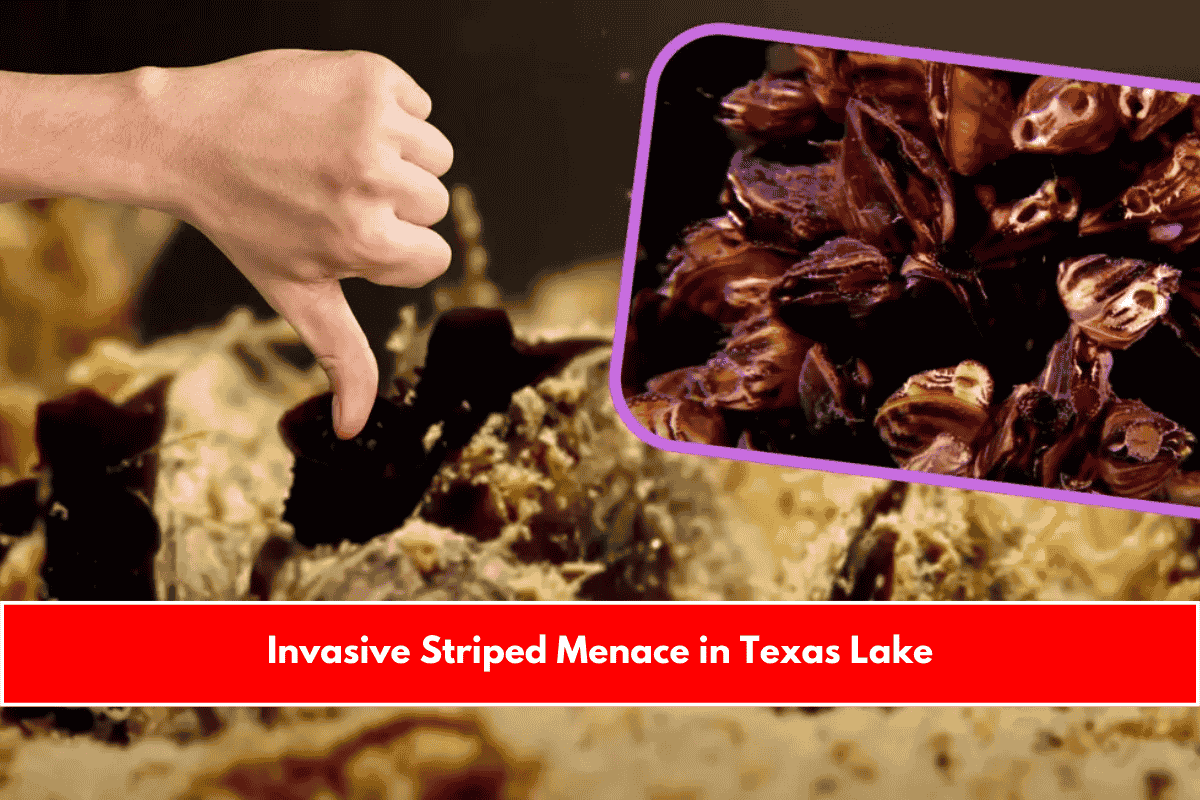You’d think anything with black and white stripes at the bottom of a lake might be a lost zebra, but this time, it’s something even sneakier — zebra mussels. These tiny troublemakers have once again made headlines, and this time, they’ve taken over Lake Nasworthy, just south of San Angelo, Texas.
What Are Zebra Mussels?
Zebra mussels are small, striped shellfish that may look harmless but cause serious damage to lakes, boats, and local ecosystems. They are not native to Texas and are considered an invasive species. That means they don’t belong here and can harm the environment around them.
These mussels attach themselves to hard surfaces like rocks, docks, and even the underside of boats. Once they’re stuck, they’re very hard to remove — and they multiply fast.
Why Are Zebra Mussels a Big Problem?
Zebra mussels are dangerous to Texas lakes because they:
- Steal food from native fish and animals by filtering out algae from the water
- Clog water systems, like pipes and filters, costing millions of dollars in repairs
- Damage boats, motors, and other equipment by attaching in large numbers
Their sharp shells can even hurt swimmers who accidentally step on them!
How Did They Get to Texas?
Zebra mussels are not from America originally. They came from Europe, most likely in the 1980s, by hiding in the ballast water of large cargo ships that arrived in the Great Lakes region.
From there, they spread south over the years. Now they’ve reached Texas lakes, where the warm water and active boating community make it easy for them to thrive.
What’s Happening in Lake Nasworthy?
The Texas Parks and Wildlife Department (TPWD) says Lake Nasworthy is now officially infested with zebra mussels. Experts believe there’s been a huge reproduction spike because the population is already so large. This means the mussels are breeding quickly and could soon spread even further.
What Boaters Should Do to Stop the Spread
Because zebra mussel larvae are microscopic, you can’t see them just by looking. So, it’s easy to accidentally carry them from one lake to another.
That’s why TPWD is urging all boaters to follow these important steps:
- Clean: Remove any mud, plants, or debris from your boat and trailer
- Drain: Get rid of any standing water from your boat — including live wells and motor areas
- Dry: Allow your boat and equipment to completely dry out before using them in a new lake
They’ve even shared a video on how to properly clean your boat to prevent zebra mussels from spreading. If you enjoy Texas lakes, it’s important to do your part.
Protecting Our Lakes Starts With Us
Zebra mussels might be small, but their impact is huge. From damaging local wildlife to clogging expensive water systems, they create real problems for Texas and beyond. By taking simple steps to clean and dry boats, we can all help protect our lakes.
It’s not just about following the rules — it’s about keeping our water clean, safe, and fun for everyone.











Leave a Reply